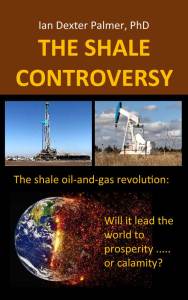America’s Frackers Are Lagging Behind Europe’s Oil Giants In Integrating Renewable Energy
Originally published on Forbes.com on October 7, 2021
The issues are how quick to transition away from fossil fuels, the risks and consequences of extracting oil, and detrimental environmental effects of renewables energies.
The oil and gas industry has made headlines again, in the USA and the UK. There are learnings here that relate to the world’s transition from fossil fuels to renewable energies.
UK gasoline shortage.
The UK gasoline shortage last week was due to a shortage of lorry drivers. Trucks are lorries in the UK. Lorry drivers were short-handed because of the Covid pandemic.
As gas stations put up signs saying they were out of gasoline (petrol in the UK), word quickly spread and a mini-panic resulted in long lines waiting for fuels and increasing frustration and even fear that people wouldn’t be able to get to work.
The UK government brought in the military to add drivers for the gasoline delivery trucks, and resolved the problem.
This reminds us how much we depend on reliable and inexpensive energy. If the world suddenly stopped oil and gas production, the inhabitants would starve. A thoughtful Canadian blogger said this two years ago and it’s still appropriate:
“What I don’t hear is a recognition that we currently have a transportation (and thus food supply) system that is utterly dependent on fossil fuels and will be for the next 20+ years. We simply don’t have widely available fossil fuel-free options for transport trucks, container ships, cube vans or airplanes. Were we to “keep fossil fuels in the ground” our food supplies would quickly dry up and people would starve…
In addition, climate change, while an important priority, is not the only priority for world governments. Climate change has the potential to kill millions in the future, but energy poverty is killing millions today. We live in a world where 1.1 billion people live in energy poverty and each year 4.3 million people a year die from preventable indoor air pollution directly resulting from that energy poverty. Governments in developing nations are going to prioritize the health of today’s people over those of tomorrow.”
In sum, we do need to transition to renewables but trying to do it too fast may endanger parts of our civilization. As Daniel Yergin said, it will take decades to change an oil and gas industry economy that is valued at $87 trillion.
Crude oil spill in California.
On Saturday morning October 2, a ruptured pipeline apparently released 126,000 gallons or 3,000 barrels of crude oil that stretches from Huntington Beach to Laguna Beach in California. An air show was canceled and beaches were closed for swimming.
Lying on the seabed, a section of pipeline about a mile long was possibly hooked by an insecure anchor from a cargo ship, and stretched like a bow string that caused a partial tear, according to federal investigators.
As of Tuesday morning only about 5,000 gallons (4%) of oil had been recovered. There will have to be a thorough cleanup of oil on beaches, marshes and wetlands that may take months.
This is not a new thing. Since 1969, there have been 44 oil spills which have released more than 400,000 gallons around US beaches. The worst was BP’s Deepwater Horizon oil spill during 2010 in the Gulf of Mexico, which all told cost BP $56 billion.
It’s understood that extracting crude oil from layers up to 10,000 feet deep is high risk because the oil is hot and under huge pressure. But accidents keep happening and are just another reason the world needs to transition to renewables as soon as it can.
Renewables can have environmental issues too.
Mining of lithium, needed for countless batteries for EVs, homes and electric grids, will have to be carefully monitored for detrimental environmental effects.
Mining accidents do happen – in Australia in 2020 a mining giant, Rio Tinto, blasted and destroyed a 46,000 year-old sacred cave that was rich in aboriginal artefacts.
A new source of metals used to make batteries, including laptops and phones, has been discovered – nickel, cobalt, manganese and other rare earth elements. At three miles depth beneath the Pacific Ocean, between Hawaii and Mexico, lies a swath of seafloor named CCZ that contains briquette-sized black nuggets called polymetallic nodules. One mining CEO calls them “a battery in a rock” and says they could be vacuumed up like golf balls on a putting green.
But behind this scene lies a strident environmental debate. First, there is the carbon footprint of any mining activity that has to be hugely challenging to extract the nodules. Second, although very low on the food chain, the CCZ has complex life, and poses the question of what happens if such life is destroyed. A biodiversity question occurs since the ocean is all connected, and activity on the seafloor at one place may affect the environment at places far away.
Existing surface mines appear able to provide the minerals the world needs now, but the Democratic Republic of Congo supplies most of the world’s cobalt, which is uncertain for the future, to say the least. A backup resource at the bottom of the ocean would add security to a world going green with batteries. One eye-opening data point for fossil fuel production: worldwide production has to start falling immediately to have a chance (50%) of keeping temperature rise below the 1.5 C goal of the Paris Agreement. This comes from the results of a new study in Nature. Of all five world regions analyzed, only the US shows oil production increasing until 2025.
Original article here.





